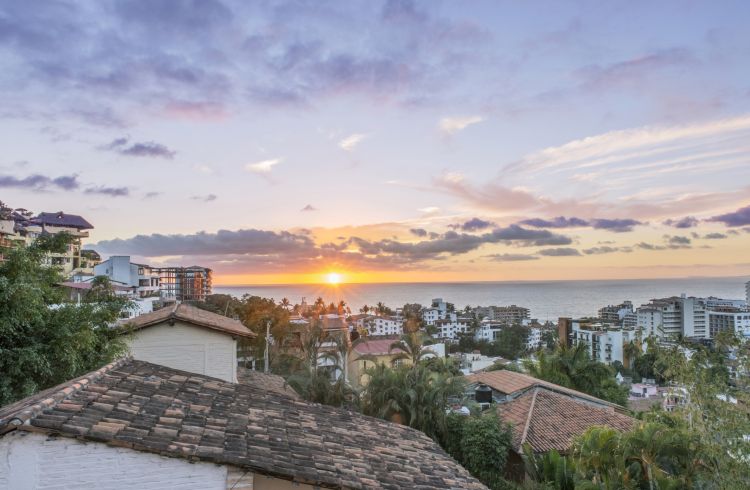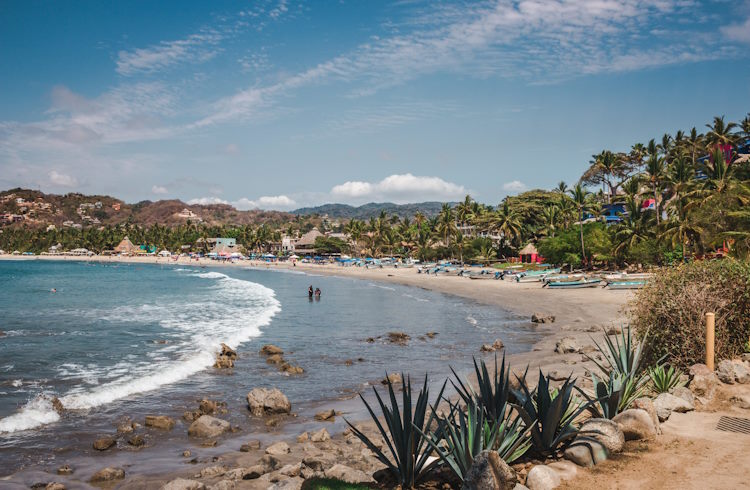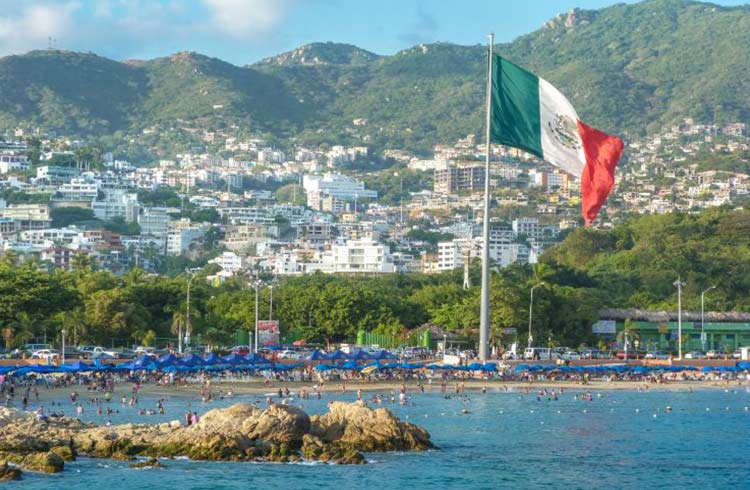Safety Tips for Travelers to the Pacific Coast of Mexico
The Pacific Coast is one of Mexico's most popular travel destinations. But just how safe is it in Puerto Vallarta, Mazatlan, Sayulita, Acapulco, and Oaxaca? Our safety expert takes a look.
 Photo © Getty Images/Mint Images
Photo © Getty Images/Mint Images
Mexico’s Pacific coast, from Mazatlan, in Sinaloa, to the state of Oaxaca, in the southwest of the country, has a lot to offer tourists. But how safe is this stretch of more than 1,200 miles (1,930km)? Here's the latest information.
- Is Mazatlan safe to visit?
- Is Sayulita safe to visit?
- Is Puerto Vallarta safe to visit?
- Is Acapulco safe to visit?
- Is Oaxaca safe to visit?
Is Mazatlan safe to visit?
Though it’s in the state of Sinaloa, which gives its name to the oldest and most powerful criminal organization in Mexico, Mazatlan is the only part of the state that doesn’t come with a government travel warning.
With 12 miles (20km) of sandy beaches, the city was, like Acapulco, known for its glamour in the mid-20th century, before becoming package-tourist fodder. Since then, it’s been overhauled, its historic “tropical neoclassical” center restored, and good times – as well as fine dining and vibrant nightlife – are being had again.
There is no reason why cautious, vigilant travelers should not have a safe stay in Mazatlan. Cartels are not in the business of costing themselves money. Do bear in mind these few rules, however, which apply all the way down the Pacific coast: acquire some Spanish; drink bottled water; plan your nights out; don’t make a show of your valuables; avoid packed buses (rapid transit systems are safer and quicker); don’t hail cars in the street, but Uber is fine; book accommodation through a reputable platform; keep a list of emergency numbers; hire a guide for tours outside the city limits; and watch out for scams – overcharging street and beach vendors, ATM skimming, and fake police officers.
Is Sayulita safe to visit?
The Nayarit Riviera, almost 200 miles (322km) of coastline from San Blas in the north to Nuevo Vallarta near the Jalisco border, draws a lot of surfers, and Sayulita, with excellent surf camps and all-level breaks, is their capital.
Formerly sleepy and recently designated a Pueblo Magico (a place notable for its beauty, historical significance or cultural import), Sayulita is a small town with the usual growing pains that come with sudden popularity (relatively sudden, anyway, since the mid-90s), but it is one of the safest spots in one of the safest states in Mexico.
Reminding people of Puerto Vallarta in the 60s – tourists often outnumber the locals, and golf carts are the vehicle of choice – Sayulita’s lack of development is the main threat to your safety. Many businesses don’t accept cards, so you’ll need to carry cash. Use bank ATMS, avoid withdrawing at night, and wear a pickpocket-proof money belt.

Is Puerto Vallarta safe to visit?
Mexico’s Pacific coast doesn’t get much more desirable than “Vallarta” as the number of expats, retirees, and second-homers there will testify. An LGBTQ+-friendly destination, dubbed “the San Francisco of Mexico”, in terms of drinking, dining, clubbing, public art, and water sports the city wants for nothing, and it has its own airport and cruise ship berths too.
Generally impressively safe, where Vallarta poses dangers – irritations, at least – it’s where it’s been a victim of its own success. After you pass through customs at the airport, you’ll have to head through “the shark tank”, which is where timeshare sales reps shoal. To describe their tactics as heavy-handed – free tequila shots, margaritas, offers of breakfast – is to not experience the onslaught up close. Though it’s possible to milk the reps for spa passes, massages, and whale-watching excursions, you are better off not engaging – it is doubtful you’ll get one over on people who are prepared to lie for their living.
Is Acapulco safe to visit?
Acapulco is the largest beach and balneiro resort in Mexico, but since its heyday in the 60s, when Elvis Presley filmed there and Frank Sinatra and Elizabeth Taylor holidayed, it has gone the wrong kind of loco.
After attracting all the wrong headlines for its top-ten placing on the league table of dangerous locales – for murder, abduction, and extortion, in particular – Acapulco had started to recover. Domestic tourists were returning, even if the convention centers weren’t full of international visitors. But the devastation wrought by Hurricane Otis in October 2023 has reopened the door to cartels vying for control of the city and its criminal economies.
Acapulco is a crucial entry point for cocaine en route from South America to consumer markets in the United States, and the Jalisco Cartel New Generation, Sinaloa Cartel groups, Familia Michoacana, and the Acapulco Independent Cartel all maintain a presence there. For now, I would leave the city to its own devices.
Is Oaxaca safe to visit?
Mexico’s fifth largest state may be one of its poorest, but it’s rich in diversity, both topographically and culturally – being home to 16 indigenous groups, each with its own customs, traditions and language.
It is also very safe, as it’s not cartel country – few contraband corridors run through the state’s forbidding landscapes: mountains, jungle and cacti-sentried scrubland.
Apart from the big waves at Playa Zicatela, the 2-mile (3.5km) beach at Puerto Escondido, Mexico’s best-known surfing spot (which has its own airport), the region is largely unmapped swell territory. That’s because it’s undeveloped. You can drive for hours on the 200 coast road and not pass a single town, but one dusty shoreline track later…
Upcoming surf towns include Manzunte, Zipolite, Barra de la Cruz, San Agustinillo, and Salina Cruz. Summer, from April when the southern swells start kicking off, is the peak season for surfing in Oaxaca, and winter is great for beginners. You should bear in mind, however, that the more remote the locale, the less likely it will come with warning signs or, traditionally, red flags. Every year, dozens of unsuspecting tourists fall prey to powerful undertows and rip currents – surfers are better equipped than swimmers to withstand the conditions, but the risks are very real.
The culture on the Pacific coast is laidback, and not averse to a party, so store your valuables, camera, and passport in a strongbox at your hotel/hostel and take just enough cash to see you through the night. Again, a money belt is your friend. For more tips to stay safe at night in Mexico, check out our article.
Related articles
Simple and flexible travel insurance
You can buy at home or while traveling, and claim online from anywhere in the world. With 150+ adventure activities covered and 24/7 emergency assistance.
Get a quote

No Comments